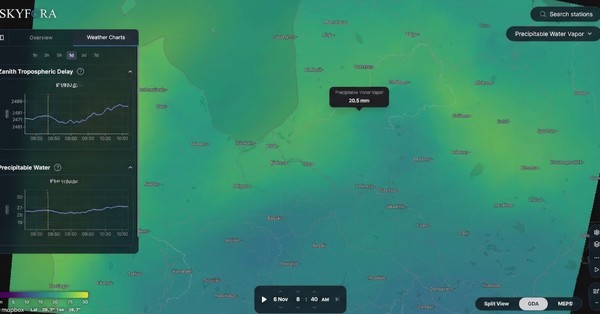A 5% increase in customer retention can correlate to a 25% increase in profit. This statistic is particularly relevant in the telecommunications industry, which is moving into a new phase, driven by the quick integration of advanced technologies and an increasing commitment to customizing customer interactions. Leading this transformation is the implementation of CPQ (Configure, Price, Quote) solutions for generating quick and accurate quotes.
CPQ solutions enable the creation of tailored solutions that meet the specific needs of individual customers. By using CPQ tools, telecom companies can quickly adjust service parameters to match customer preferences, improving satisfaction and loyalty. This level of personalization is necessary for sectors facing challenges in retaining customers and where differentiation is key. This blog focuses on exploring the role of CPQ solutions, their advanced capabilities, and their influence on the telecom industry.
Real-life example: The impact of CPQ in Telecom
Have you ever wondered how telecom companies overcome their massive, complex sales challenges? Let us take you through a real-life scenario that demonstrates the transformative impact of CPQ technology.
A leading communication service provider faced significant challenges with its sales quotation process, which was prone to errors and inefficiencies due to its reliance on multiple spreadsheets and manual processes. A goal was to improve their sales process with a CPQ solution that could
quickly create accurate offers, streamline calculations, and improve cross-departmental collaboration without the constant need for IT intervention.
This implementation enhanced the user experience by connecting with existing business tools, significantly simplifying administrative tasks and empowering sales representatives to focus more on customer interaction.
The results in numbers:
- 30% increase in productivity for sales reps, enabling them to handle more transactions and customer interactions efficiently.
- 100% improvement in decision-making for sales managers, providing them with clearer insights to drive sales strategies.
- 4x faster time to market for product managers, significantly accelerating the launch of new services and products.
Operational agility with CPQ
CPQ solutions have improved the operational agility of telecom companies. They offer flexibility, enabling real-time updates and global accessibility. Such agility plays an important role in a sector where market conditions and technological capabilities evolve quickly. For instance, updates in offerings or pricing can be rolled out instantly across all platforms, ensuring that sales teams are always equipped with the latest information, regardless of their geographical location.
Streamlining complex service configurations
Following the real-life example where CPQ significantly boosted efficiency across sales processes, let’s explore another important area where CPQ solutions have made a dramatic impact: the management of complex service configurations.
Telecom offerings today are diverse, often combining voice, data, internet, and digital services. CPQ tools simplify the configuration process, enabling fast combinations of package deals to suit market demands. This efficiency is particularly evident in how these tools can simply handle varying service combinations and multi-level pricing models, significantly reducing the time and effort required to manage these packages.
Pricing in telecom industry is a complex mix of competitive positioning, regulatory compliance, and market dynamics. CPQ solutions offer clarity and consistency in this challenging aspect. By automating the pricing process, CPQ tools ensure accuracy, compliance with pricing rules, and the ability to respond quickly to market changes. This results in pricing strategies that are both competitive and profitable.
Synergy between Salesforce and CPQ
Building on the efficiency that CPQ introduces in simplifying complex service configurations, the next step involves utilizing the synergy between CPQ tools and CRM systems like Salesforce.
This integration creates a powerful combination that transforms how customer interactions are handled from start to finish. It optimizes the entire customer journey, from the initial inquiry through to the final sale, ensuring that each step is both efficient and tailored to individual needs. By aligning sales processes with comprehensive customer data, telecom companies are able to delve deeper into understanding customer behaviors and preferences. This deeper insight allows for the development of more targeted and effective sales strategies, ultimately leading to enhanced customer experiences.
Moreover, this strategic alignment between CPQ and CRM systems enables a more seamless workflow within sales teams. Sales representatives can access unified data that gives a complete view of customer interactions and history, enabling them to respond more quickly and appropriately to customer inquiries and needs. Additionally, this integration helps in automating routine tasks, which reduces human errors so sales teams can focus on more strategic activities that add value to the customer relationship.
Be a CPQ trailblazer in telecom industry
Ready to take your telecom company to the next level? Start by identifying your current challenges in product management and customer engagement. Are your product launches slow? Is customizing offers taking up too much time? Dive into the world of CPQ solutions that not only accelerate your product launches but also customize your offers for each unique customer. Here is your action plan:
Explore CPQ options: Research various CPQ solutions, focusing on those offering agility and integration with your existing business tools like CRM, ERP, order capture or product catalogue.
Interactive exploration: Experiment with a demo or a trial version. See firsthand how it simplifies complex pricing structures.
Engage with experts: Reach out to CPQ professionals or consultants. Gain insights on best practices and successful implementations.
Ongoing feedback: Once you’ve started using a CPQ tool, regularly gather feedback from your sales team. What’s working? What requires adjustments?
Innovate and evolve: Use the insights you gain to continuously refine your approach. Stay ahead of the trends by embracing new CPQ features and updates.
By following these steps, you are improving your sales strategy. Become a CPQ pioneer, lead your telecom company with innovation, and watch as you transform challenges into opportunities.
Concluding thoughts: The CPQ-powered future
CPQ tools are reshaping telecom industry, forging paths toward more personalized customer engagement, operational agility, and strategic sales management. As telecom companies embrace these tools, they are well-positioned to lead in a quickly changing digital environment, offering services that are as diverse and dynamic as the market they serve.
It’s clear that CPQ tools offer more than just operational benefits. Consider the role CPQ could play in your organization. How might these tools transform your customer engagement and product management strategies? I encourage you to critically assess your current processes and predict how CPQ could enhance them. The role of CPQ in shaping the future of telecom is undeniable, offering you the opportunity to impact this transformation directly.










































